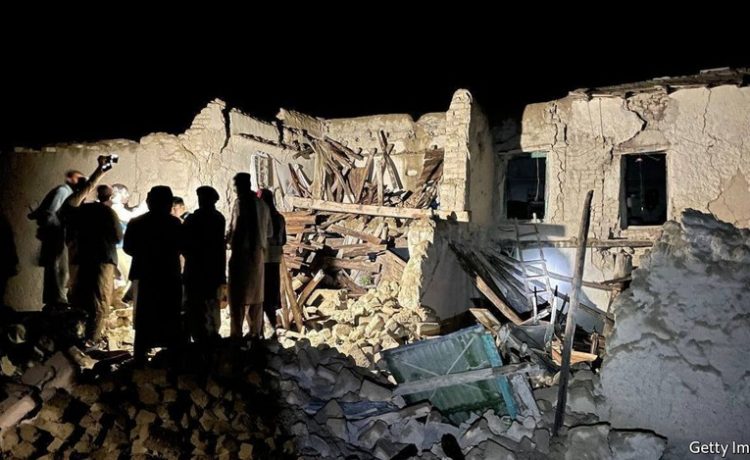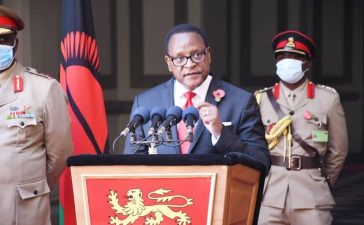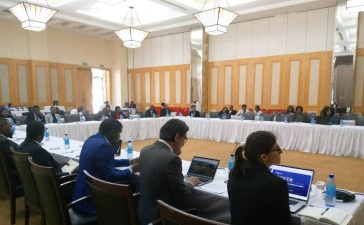BBC
Heavy rain, threadbare resources and rugged terrain are hampering rescuers in south-east Afghanistan, where a powerful earthquake is reported to have killed more than 1,000 people.
Unknown numbers were buried in the rubble of ruined, often mud-built homes by the magnitude 6.1 earthquake.
Afghanistan’s health system was facing near collapse even before the disaster.
The Taliban authorities have called for more international aid. Communication networks are also badly hit.
“We can’t reach the area – networks are too weak,” a Taliban spokesman was quoted by Reuters as saying.
The United Nations is among those scrambling to provide emergency shelter and food aid to remote areas in the worst-hit Paktika province.
Survivors and rescuers have told the BBC of villages completely destroyed near the epicentre of the quake, of ruined roads and mobile phone towers – and of their fears that the death toll will rise further. Some 1,500 people were also injured, officials say.
The earthquake struck early on about 44km (27 miles) from the city of Khost and tremors were felt as far away as Pakistan and India.
Afghanistan is in the midst of a humanitarian and economic crisis, and Abdul Qahar Balkhi, a senior Taliban official, said the government was “financially unable to assist the people to the extent that is needed”.
The head of the UN, António Guterres said the agency had “fully mobilised” over the disaster. Health teams, medical supplies, food and emergency shelters were en route to the quake zone, UN officials said.
But Mohammad Amin Huzaifa, head of information for Paktika province, told AFP it was proving “very difficult” for rescuers to reach areas “affected by floods because of heavy rains last night”.












